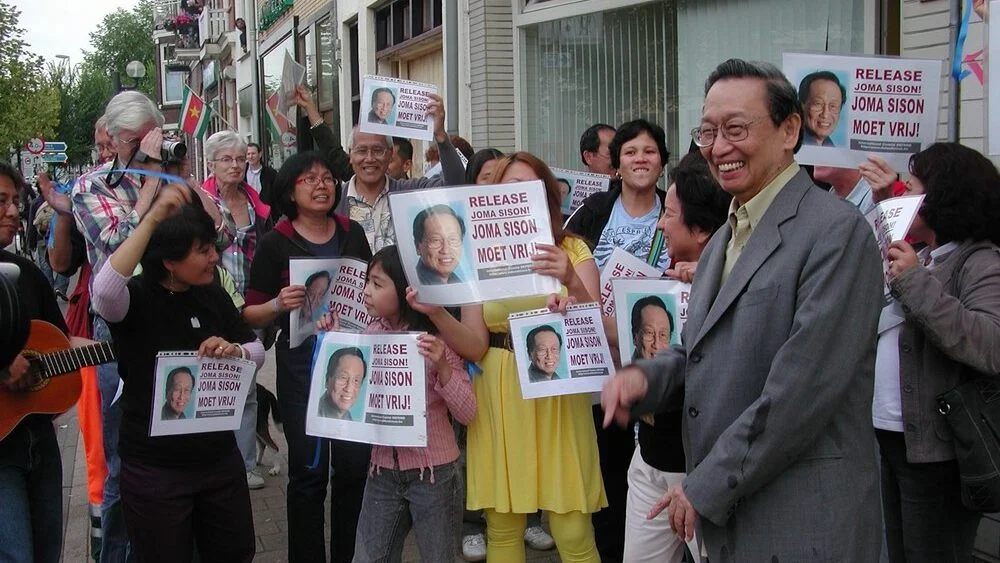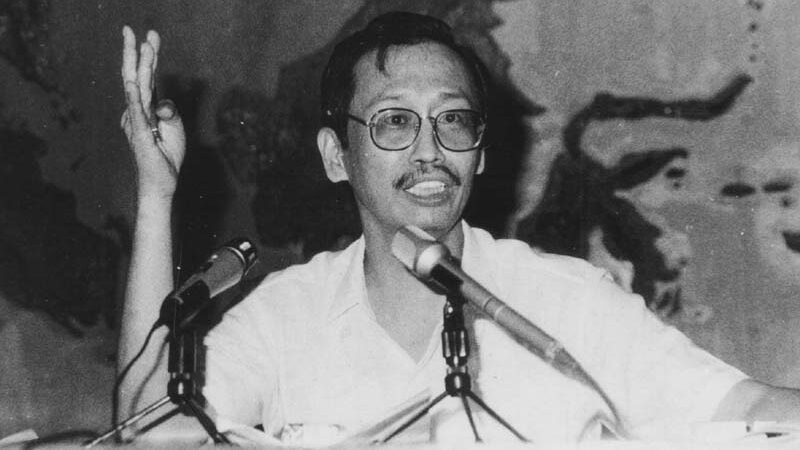My Friend the Terrorist: A Tale of Love and Revolution (2024) is a documentary like no other about courage, sacrifice… and karaoke. It tells the life story of the late Jose Maria Sison, affectionately known as JoMa, and his wife and partner in revolution of 63 years, Julieta de Lima, or Juli.
Before being trapped in exile in Utrecht, Netherlands, for over 35 years, JoMa was the founder of the Communist Party of the Philippines (CPP), its guerilla-military arm the New People’s Army (NPA), and co-founder of the national youth movement Kabataang Makabayan. The documentary focuses not only on the couple’s stories as leaders of a movement trying to bring about profound change in their country, but also on the millions of lives their leadership has changed over the decades.
My Friend the Terrorist is neither a distant fly-on-the-wall chronicling of some “great figures who shaped history,” nor a grim, dark war documentary (though there are one or two shocking scenes of police repression). On the contrary, the documentary principally seeks to humanize these two enemies of the State, once at the top of the Western world’s terror watchlists. We meet them in old age, strolling along the canals of Utrecht, interacting with locals and reminiscing on a life of love and struggle.
The directors, Malcolm Guy and Demetri Estdelacropolis, capture every ounce of Sison and de Lima’s dignity, courage, and whimsy. JoMa loves singing karaoke and does so frequently throughout the film (a habit that he picked up to keep himself sane during his long years in prison); they both have a great sense of humor and love to tease eachother. For all the pain they’ve lived through, from jungle warfare to incarceration and torture to watching their four children grow up from afar, they possess an unshakable joy and conviction.

The effect is compounded by excursions into the densely packed cities, wide-open countryside, and lush jungles of the Philippines where we see the fruits of the couple’s lifelong struggle: a self-governing society living in open defiance of the US-backed Filipino government which has been trying and failing for decades to brutalize them into submission.
Between the couple’s tender moments, interactions with bewildered Dutch people meeting communist revolutionaries for the first time, and excerpts of JoMa’s poetry, the real heart of this documentary is the Filipino rebels themselves. We meet agricultural workers telling horror stories of state brutality, guerrilla fighters offering healthcare and education to indigenous Lumads in the jungle, and parents of young children who had to leave their families to fight for a better future. All radiate with pride and love when discussing JoMa, Juli, and the movement they fight for.
The film is a densely packed hour and forty minutes long and features decades worth of interviews. It boasts rare footage featuring cultural events in distant NPA-controlled territory, conversations with reclusive political figures, and a glimpse into peace talks between the CPP and Filipino government in Oslo, Norway.
The film’s photography elegantly captures scenes from around the world in what feels like a globe-spanning roadtrip. Its intimate, quiet moments are wrapped together nicely with an understated but elegant soundtrack by Sebastian Splinter.
Screenings of My Friend the Terrorist are still somewhat rare due to the difficulty in distributing this sort of film. It will not be available to stream for some time due to security concerns for the militants, whose location risks being discovered by the Filipino government. It is worth keeping an eye out for, however: there are very few films like this one.
Upcoming screenings of the film and its trailer are available here.

